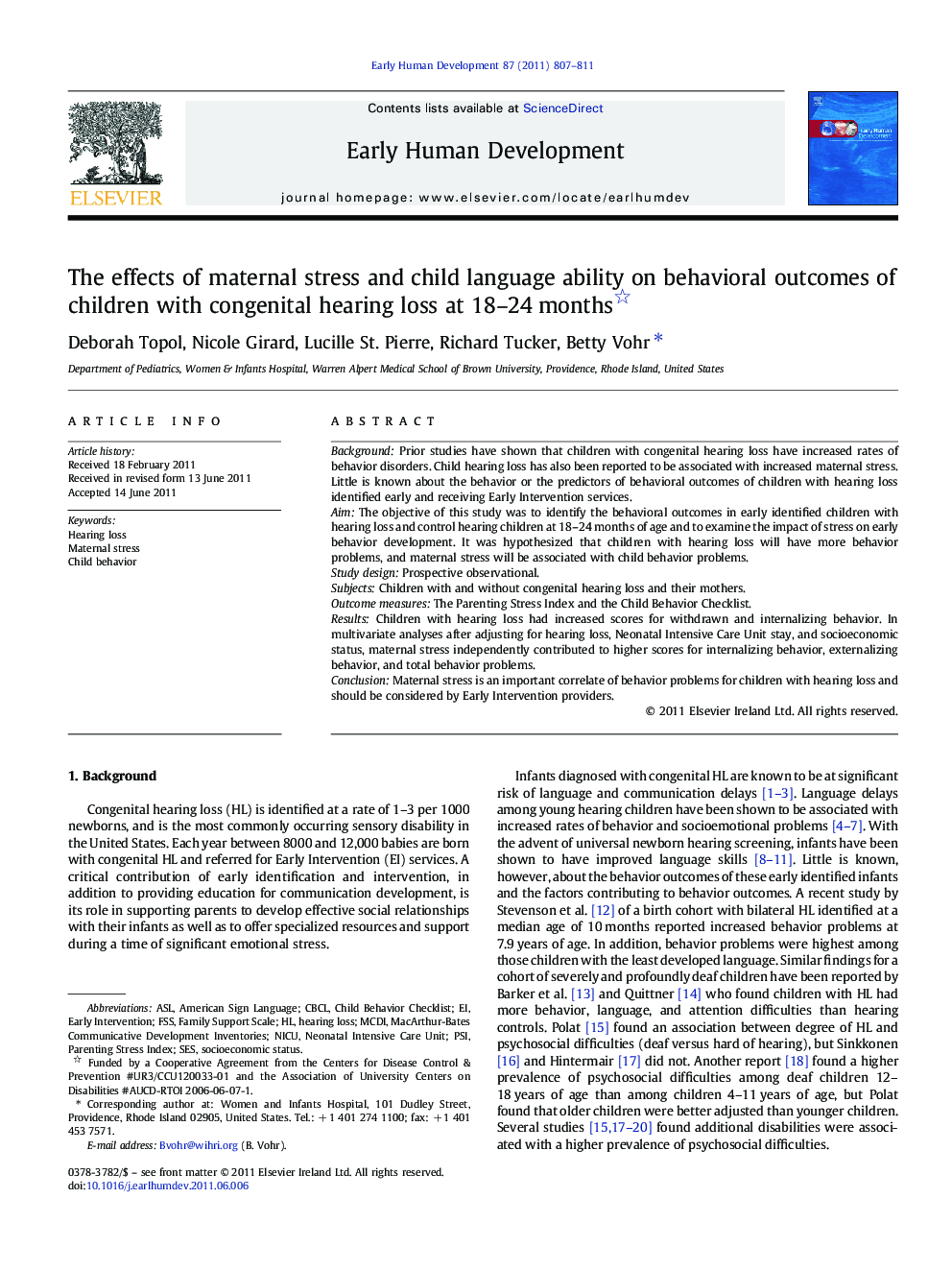| Article ID | Journal | Published Year | Pages | File Type |
|---|---|---|---|---|
| 6172179 | Early Human Development | 2011 | 5 Pages |
BackgroundPrior studies have shown that children with congenital hearing loss have increased rates of behavior disorders. Child hearing loss has also been reported to be associated with increased maternal stress. Little is known about the behavior or the predictors of behavioral outcomes of children with hearing loss identified early and receiving Early Intervention services.AimThe objective of this study was to identify the behavioral outcomes in early identified children with hearing loss and control hearing children at 18-24 months of age and to examine the impact of stress on early behavior development. It was hypothesized that children with hearing loss will have more behavior problems, and maternal stress will be associated with child behavior problems.Study designProspective observational.SubjectsChildren with and without congenital hearing loss and their mothers.Outcome measuresThe Parenting Stress Index and the Child Behavior Checklist.ResultsChildren with hearing loss had increased scores for withdrawn and internalizing behavior. In multivariate analyses after adjusting for hearing loss, Neonatal Intensive Care Unit stay, and socioeconomic status, maternal stress independently contributed to higher scores for internalizing behavior, externalizing behavior, and total behavior problems.ConclusionMaternal stress is an important correlate of behavior problems for children with hearing loss and should be considered by Early Intervention providers.
